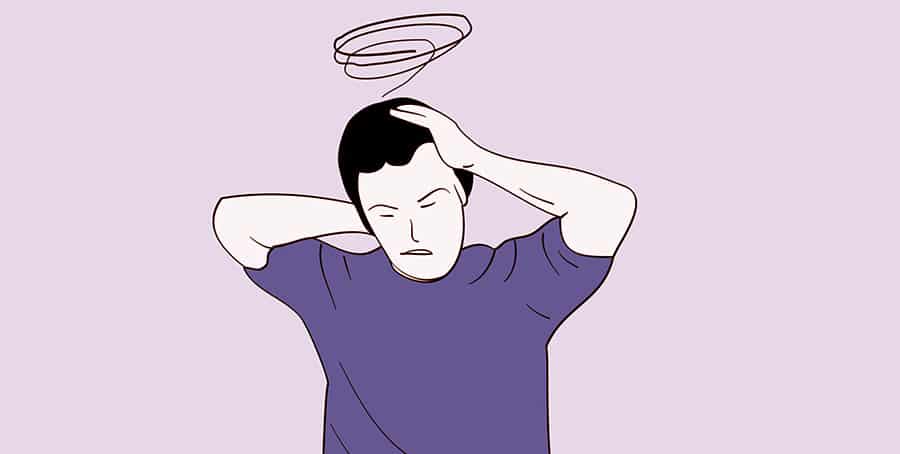Do you often suffer from migraines? If you answered yes, then you are not alone. Migraine is a common headache disorder that affects millions of people around the globe.
Migraine is a neurological condition characterized by recurrent attacks of severe headaches. The symptoms include nausea, vomiting, sensitivity to light or sound, and fatigue.
What Are the Main Causes of A Migraine?
Migraines can be triggered by certain foods and drinks, stress, or other factors. The exact cause is unknown, but it appears to involve changes in blood flow to the brain.
The most common type of migraine occurs when arteries carrying blood into the head narrow or constrict. This causes pressure on nearby nerves. Nerves carry messages between the body and the brain. When they become irritated, they send pain signals to the brain.
Another type of migraine involves swelling of the membranes surrounding the brain. The swelling may block some nerve fibers, causing them to stop sending pain signals.
How to Get Rid Of A Migraine Fast – Home Remedies For Migraine Headache
There are several ways to treat migraine. Some medications are effective at relieving pain, while others reduce the frequency of attacks. There are also lifestyle changes that can help prevent migraines.
These home remedies for migraine will help you get rid of your painful migraine headache fast!
1. Ginger
Ginger has been used as a natural remedy for centuries. It helps with digestion and circulation, which in turn reduces inflammation and relaxes muscles. This makes it an excellent remedy for migraines.
Ginger tea is one of the most popular methods of using ginger. You can prepare this drink by boiling 1/2 cup water with 2-3 slices of fresh ginger root. Let the mixture steep for 10 minutes before straining. Drink two cups daily.
Another way to use ginger is to grate some fresh ginger into a glass of warm milk. Add honey if desired.
You can also add grated ginger directly to food. Try adding it to stir-fries, soups, stews, or casseroles.
You can even make ginger candy. Grate half a pound of ginger root and mix with sugar and cinnamon. Bake the mixture at 350 degrees F until set. Cool completely before cutting into small pieces.
2. Chamomile Tea
Chamomile tea contains anti-inflammatory properties. It may be helpful for those who experience frequent migraines.
To make chamomile tea, place 4 teaspoons of dried chamomile flowers in a teapot. Pour hot water over them, cover, and let sit for about 5 minutes. Strain out the flowers and serve.
To use chamomile tea as a treatment for migraines, take 1 teaspoon of the liquid each hour. Repeat this process throughout the day.
3. Peppermint Oil
Peppermint oil is another commonly recommended treatment for migraines. It works by relaxing tense muscles and reducing muscle spasms.
Peppermint oil comes from the leaves of the plant. To prepare peppermint oil, simply steam the leaves until they become soft. Then pour off the oil through a filter.
The oil should be stored in dark bottles in a cool location. Use only a few drops per application.
4. Exercise
Exercise is known to relieve tension and stress. You release endorphins, chemicals that act like morphine and trigger relaxation when you exercise regularly.
This means that when you exercise, you feel better than when you don't. In fact, many studies have shown that regular physical activity can lower the risk of developing chronic conditions such as diabetes and heart disease.
If you're suffering from a migraine, try exercising during the hours just prior to your attack. This may help reduce the severity of your symptoms.
5. Herbal Treatments
Herbs contain natural substances that work on the body's own healing mechanisms. They often provide relief without causing side effects.
Some herbs are believed to prevent migraines, while others actually treat them. Many people find that taking herbal treatments along with their prescription medications provides the best results.
6. Vitamin B-12
Vitamin B-12 is essential for healthy brain function. If you suffer from migraines, you may need more vitamin B-12. Some experts recommend supplementing with 100 micrograms of vitamin B-12 three times a week.
7. Magnesium
Magnesium is an important mineral that helps regulate nerve impulses and blood flow. It also plays a role in maintaining normal muscle contraction.
People who suffer from migraines tend to have low levels of magnesium in their bodies. Taking 400 milligrams of magnesium daily may help alleviate migraine pain.
8. Fish Oil
Fish oil has been found to ease migraine headaches. Studies show that fish oil supplements may decrease the frequency and intensity of migraines. This is done by increasing the amount of omega-3 fatty acids in the body.
9. Omega 3 Fatty Acids
According to scientific studies conducted by the National Institutes of Health, Omega 3 fatty acids may play a role in preventing migraines. These fats are found in oily fish such as salmon, tuna, mackerel, sardines, herring, and trout.
10. Lavender Essential Oil
Lavender oil is thought to soothe the nerves. A study published in The Journal of Alternative and Complementary Medicine showed that lavender oil helped reduce the number of migraine attacks among women.
Lavender oil is available at most health food stores. Simply place 2 drops under your nose.
13. Evening Primrose Oil
Evening primrose oil is rich in omega 6 fatty acids. These oils are believed to improve circulation and promote sleep. Evening primrose oil helps overcome migraines by improving blood flow and promoting restful sleep.
14. Fenugreek Seeds
Fenugreek seeds contain saponins, which stimulate digestion and increase metabolism. As a result, they relieve nausea and vomiting associated with migraines.
15. Peppermint Oil
Peppermint oil relieves nausea and vomiting associated with migraines. Take 1/2 teaspoon of peppermint oil mixed into water 30 minutes before meals.
16. Massage Therapy
Massage therapy is another way to relieve tension and stress in the body. A Swedish massage therapist can perform deep tissue massages to release tightness in the neck and shoulders.
17. Meditation
Stress is one of the leading causes of migraines. Try meditation techniques like yoga or tai chi to help control your emotions and manage stress. Meditation relaxes the mind and calms the nervous system. In addition, it reduces anxiety and depression.
18. Cranberry Juice
Cranberries have long been used to fight urinary tract infections. Recent research suggests that cranberry juice may also help prevent or lessen the occurrence of migraines.
19. L-Theanine
This amino acid is present in green tea. It promotes relaxation and lowers stress. Research shows that people who take l-theanine experience fewer migraines than those who do not.
20. Vitamin D
Vitamin D is essential for healthy bones and teeth. It also aids in regulating moods and emotions. People who live in northern climates often have vitamin D deficiency. Supplementation with vitamin D may be beneficial for reducing the severity of migraines.
Conclusion
Migraine headaches are very painful and debilitating. They affect more than 50 million Americans each year. Fortunately, there are many natural remedies that may help you overcome this condition.
Migraine sufferers should try all the above natural remedies to alleviate their symptoms. However, if you notice no improvement after trying them out, we recommend seeing a doctor.






